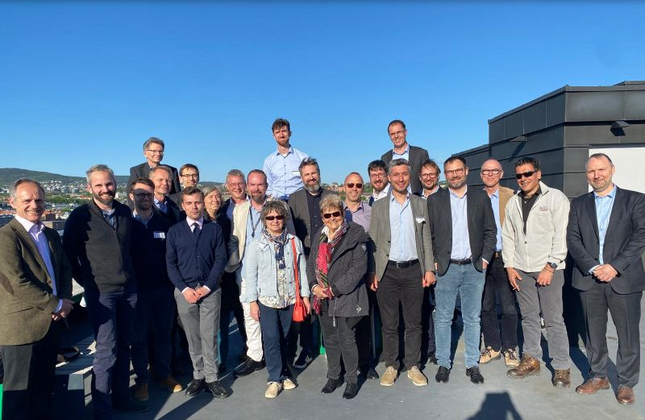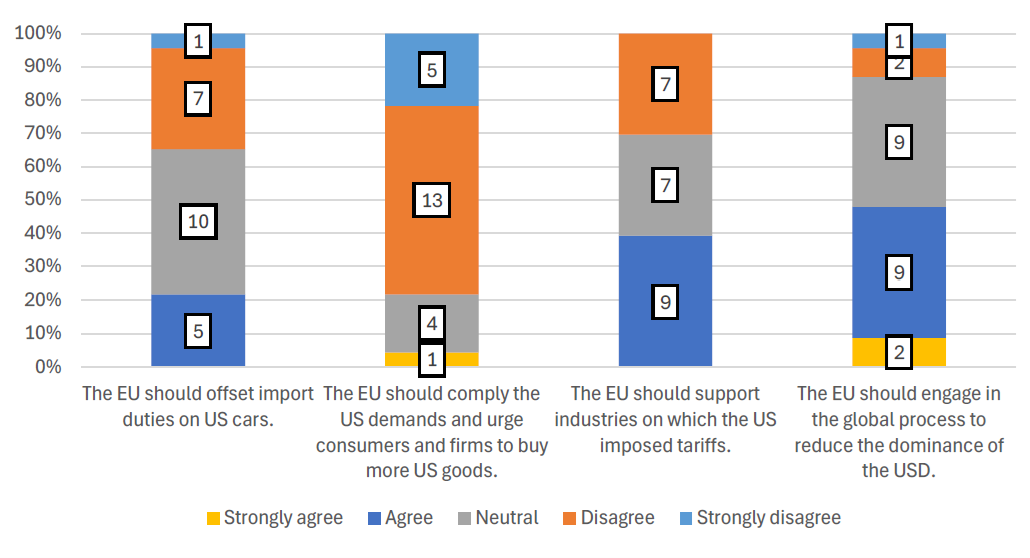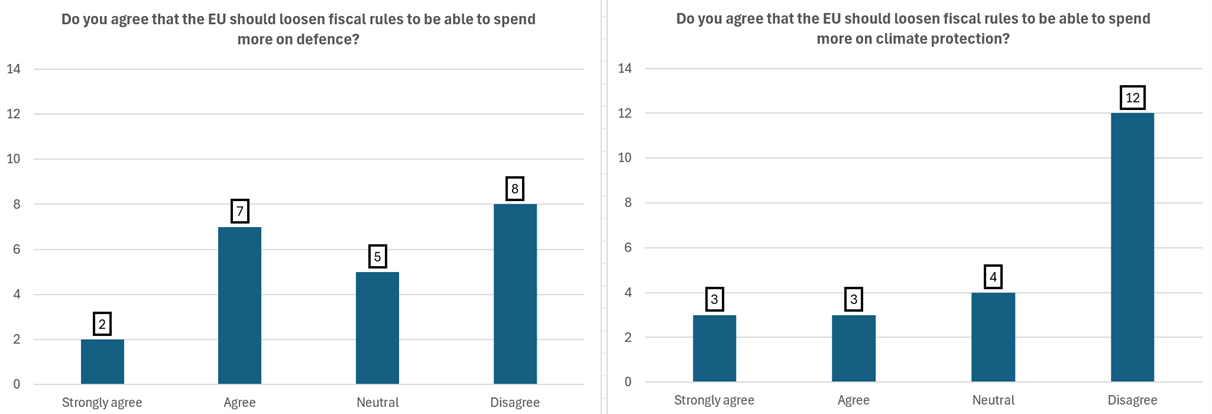
European economic research institutes call for strengthening competitiveness
The AIECE Association of European Economic Research Institutes expects weak global economic growth due to trade disputes and geopolitical conflicts. The economists recommend that EU member states invest more in sustainability, digital infrastructure, and strategic sectors.
The AIECE Association of European Economic Research Institutes has today published its bi-annual General Report, following the Spring 2025 Meeting held in Oslo hosted by Statistics Norway.
On average, AIECE member institutes forecast EU gross domestic product (GDP) to grow by of 1.2% in 2025 and 1.5% in 2026. The forecast for Euro Area GDP growth is 1.0% and 1.3%. These forecasts are a bit more optimistic than those presented in the OECD's March 2025 Interim Report and the IMF's Spring 2025 World Economic Outlook.
The AIECE General Report for Spring 2025 highlights weak global growth amid substantial uncertainty driven by geopolitical conflicts and unpredictable US trade policies. Enhancing European competitiveness through investments in sustainability, digital infrastructure, and strategic sectors is seen as essential.
Concerning proposed reactions to US trade policy, nearly half of the respondents support the idea that the EU should join initiatives to reduce the dominance of the US dollar (see Figure 1). Additionally, 40% of respondents recommend that the EU provide targeted support for industries most affected. In contrast, a majority of the surveyed economists oppose proposals to increase market access for American products and to encourage their consumption within the EU.
Figure 1: Proposed reactions to the US trade policy
Notes: The figure presents AIECE members’ assessments of select proposals regarding how the EU should respond to current US trade policy. Example of how to read the figure: For the proposal that the EU should offset import duties on US cars, 5 economists expressed agreement, 10 were neutral, 7 disagreed, and 1 strongly disagreed.
In light of fiscal expansion plans in Germany and other EU countries, the recent AIECE Questionnaire asked member institutes whether the EU's fiscal rules should be relaxed, and whether increasing public debt is advisable. As shown in Figure 2, a majority of respondents oppose loosening fiscal rules for the purpose of increasing spending on climate protection. However, opinions are divided on whether the rules should be relaxed to allow for greater defense spending.

“The primary drag on the European economy today is not the tariffs themselves, but the high uncertainty surrounding the future of international trade policy.”Heiner Mikosch, AIECE president and researcher at KOF
Heiner Mikosch, AIECE president and researcher at KOF, comments: “The primary drag on the European economy today is not the tariffs themselves, but the high uncertainty surrounding the future of international trade policy. This unpredictability is prompting companies to delay investments and adopt a cautious, wait-and-see approach. While the current outlook is often pessimistic and risk-focused, there remains significant potential for recovery. Encouragingly, there are signs that the Trump administration is shifting toward a more cooperative stance on reforming international trade rules. If this trend continues, much of the uncertainty could dissipate, paving the way for increased global investment and renewed economic momentum.”
Figure 2: Assessments of AIECE members on loosening EU fiscal rules
Note: This figure shows whether AIECE members recommend loosening EU fiscal rules for specific policy purposes. Example: For the proposal to relax fiscal rules in order to increase spending on climate protection, 3 economists strongly recommend the measure, 3 recommend it, 4 are neutral, and 12 oppose the proposal.
The AIECE General Report
The external page Spring 2025 AIECE General Report, authored by Katalin Nagy and Péter Vakhal of Kopint-Tárki Institute (Hungary), offers a comprehensive macroeconomic outlook for the European economy. It also includes detailed assessments from member institutes on key cyclical, policy, and structural issues.
About the AIECE

The AIECE Association of European Economic Research Institutes, founded in 1957, brings together 40 member institutes and observers from 19 countries and five international organizations. The association convenes twice a year to exchange views on the economic outlook for European economies and discuss economic policy as well as structural economic developments. The AIECE serves as an independent, transnational forum for the regular and systematic assessment of Europe's economic outlook. More information is available at: external page https://www.aiece.org/about-aiece.
Contact
KOF Konjunkturforschungsstelle
Leonhardstrasse 21
8092
Zürich
Switzerland

